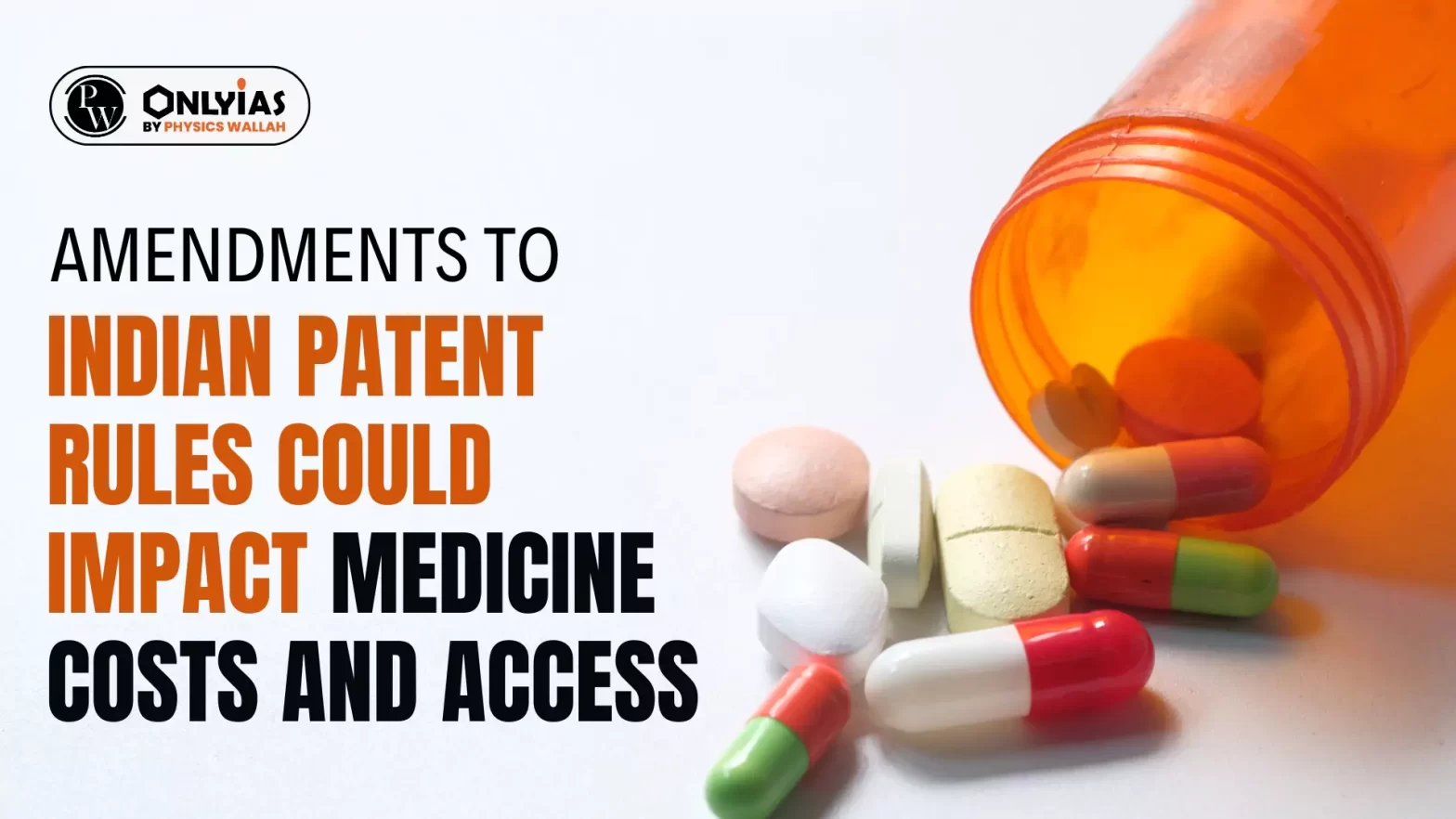Context
India’s healthcare system heavily relies on affordable medicines, with the generic pharmaceutical industry playing a pivotal role in providing quality drugs at reasonable prices.
| Relevance For Prelims: Indian Patent Act, New Patent Rules 2024, TRIPS, and Trade Related Intellectual Property Rights.
Relevance For Mains: Issues in India’s Patent Act and Generic medicines |
The Crucial Role of Generic Pharma in Affordable Access to Essential Medicines
- Medicine Costs: Medicines constitute a significant portion of healthcare costs, with nearly 50% of expenses incurred by individuals attributed to purchasing medications.
- Barrier to Access: However, the high costs of medicines, primarily driven by patenting, pose a significant barrier to accessing essential treatments.
- Role of Generic Pharma in Affordability:
- Generic pharmaceutical companies play a crucial role in addressing the affordability challenge by providing cost-effective alternatives to patented drugs.
Enroll now for UPSC Online Course
Indian Patent Law: Evolution, and Challenges
- Evolution of Indian Patent Law: The evolution of Indian patent law, particularly the changes introduced in the early 1970s, allowed India to emerge as a major exporter of generic drugs by the late 1980s.
- Challenges from TRIPS Agreement: However, subsequent international agreements, such as the TRIPS Agreement of 1995, mandated the re-introduction of product patents, posing challenges to India’s generic pharmaceutical industry.
- Introduction of Section 3(d) in Indian Patent Act: In response to these challenges, India introduced Section 3(d) to its Patent Act in 2005, aiming to prevent the patenting of insignificant modifications of existing drugs. This provision was upheld in the landmark Novartis case.
- Utilizing TRIPS Flexibilities in Patent Law: Additionally, India amended its patent law to leverage flexibilities provided by the TRIPS Agreement, such as opposition to patents at various stages and compulsory licensing in the interest of public health.
- India’s Rise as Generic Drug Manufacturer: The above changes spurred the development of the generic industry, making India a net exporter of drugs by the late 1980s and the leading generic manufacturer by the 1990s.
Impact of Amendments to Indian Patent Rules
- Concerns Over Indian Patent Rule Amendments: The recent amendments to Indian patent rules have raised concerns about their potential effects on the pharmaceutical ecosystem.
- The law allowed protection only to the process through which a medicine was made, but not the product itself.
- Pre-Grant Opposition Changes: By making it difficult to oppose patents at the pre-grant stage, the amendments could facilitate easier patenting and lead to an increase in drug prices.
- These changes could undermine the competition that generic companies provide, thus impacting affordability.
- Threats to Pre-Grant Opposition: These amendments weaken the mechanism for challenging the grant of patents, potentially facilitating the grant of patents for inventions that lack genuine novelty or therapeutic efficacy.
- Influence of Pharmaceutical Giants: The recent amendments to Indian patent rules have been influenced by pressure from pharmaceutical giants, particularly Western and Japanese companies.
- Financial Hurdle For opposing: The requirement for opponents to pay fees for filing oppositions adds a financial burden, potentially deterring patients and civil society organizations from challenging frivolous patents.
-
- Data shows that PGOs reduce the likelihood of frivolous patents
- Changes in Reporting Requirements for Patent Holders: According to the old rules, the controller had to be given details about the production process every year. After the amendments, this information will be provided on a three-yearly basis.
- Compulsory Licensing Challenges: The non-working of the patent is one of the basis for seeking a compulsory license. The fact that data will not be available to the Patent Controller, and hence the public, will make compulsory licensing difficult.
Conclusion
The amendments to the Indian Patent Rules must be carefully evaluated and revised to mitigate their adverse impact on access to essential medicines and public health outcomes.
Also Read: Generative AI And Copyright Infringement
![]() 23 Apr 2024
23 Apr 2024
